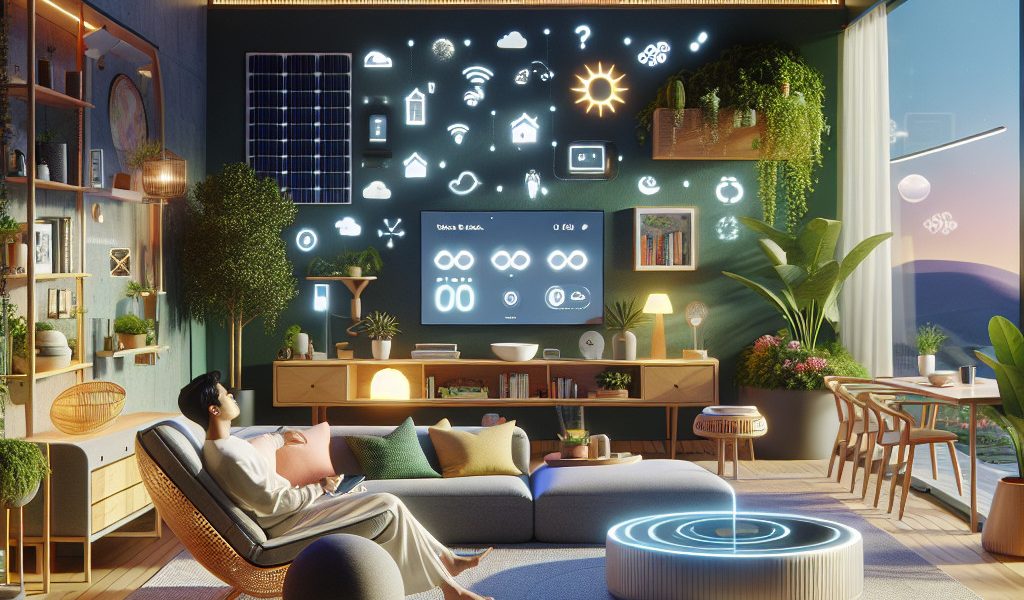Living in the Future: Unveiling the Eco-friendly, Connected and Super-Comfortable Homes
Introduction
The house of the future is a concept that has been dreamed of for decades. Today, thanks to technological advances, this dream is becoming a reality with increasingly intelligent homes, promoting the well-being of occupants while being concerned about the environment. In this article, we will explore how innovations in home automation and environmentally friendly materials used in construction are helping to transform our homes into flexible spaces adapted to the changing needs of families.
Comfort and connectivity at the heart of the home of the future
One of the most important aspects of the house of the future is the comfort it offers its occupants. To do this, it relies on extensive integration of innovative technologies which make it possible to optimize space and improve the quality of life. Home automation plays a key role here by offering centralized and automated management of the various equipment present in the home.
For example, it is possible today to install an intelligent system capable of automatically managing lighting based on exterior brightness or even regulating the ambient temperature according to occupant preferences. Connected objects such as smart thermostats or voice assistants also facilitate this interaction between the user and their environment.
Autonomous energy management
The house of the future is also intended to be ecological and energy efficient. To do this, it integrates innovative solutions allowing energy to be produced and consumed more responsibly. Photovoltaic solar panels are increasingly present on the roofs of houses to produce part or all of the electricity necessary for their operation.
Energy storage systems, such as domestic batteries, make it possible to optimize this solar production by storing excess energy to release it when needed. Coupled with an intelligent home automation system, this device can help to significantly reduce household energy bills while reducing their carbon footprint.
Ecological materials for sustainable construction
Beyond the technologies integrated into our homes, the house of the future also relies on environmentally friendly materials to ensure its sustainability. These materials must not only be durable and recyclable, but also offer optimal thermal performance in order to limit energy loss.
For example, we find wood in construction with wooden frame houses (MOB) which have several advantages: they are quick to build, modular according to needs and have excellent thermal performance thanks to the natural insulators used such as straw or wood. hemp. Likewise, single-wall terracotta bricks offer an ecological and efficient alternative to traditional materials.
Modular houses to adapt to the needs of families
One of the current trends in the field of housing is modularity. Indeed, homes of the future must be able to adapt to the changing needs of families throughout their lives. This includes the ability to easily add or remove parts, as needed.
This scalability also makes it possible to improve the energy efficiency and autonomy of homes by adjusting their surface area and layout to actual energy consumption. Several innovative companies have already launched into this niche, such as the Swedish giant IKEA, which has for several years been offering prefabricated modules that can be assembled to create tailor-made housing.
Choose the right professionals to carry out these transformations
To transform your home into the home of the future, it is essential to call on competent and experienced professionals in this field. Whether to integrate an intelligent home automation system or use ecological materials during new construction or renovation, you should turn to experts capable of offering solutions adapted to your needs and constraints.
Several companies specializing in these areas have emerged in recent years to help individuals realize their home of the future project. It is therefore recommended to compare offers and request several quotes to choose the service provider who will be able to support you in this transformation.
Conclusion
The house of the future is taking shape today through technological and ecological innovations to improve our quality of life while respecting the environment. Comfort, connectivity and modularity are all aspects that contribute to making our homes evolve into intelligent and sustainable spaces. To succeed in this transition, it is important to surround yourself with the right professionals capable of bringing your projects to fruition according to your needs and your budget.
